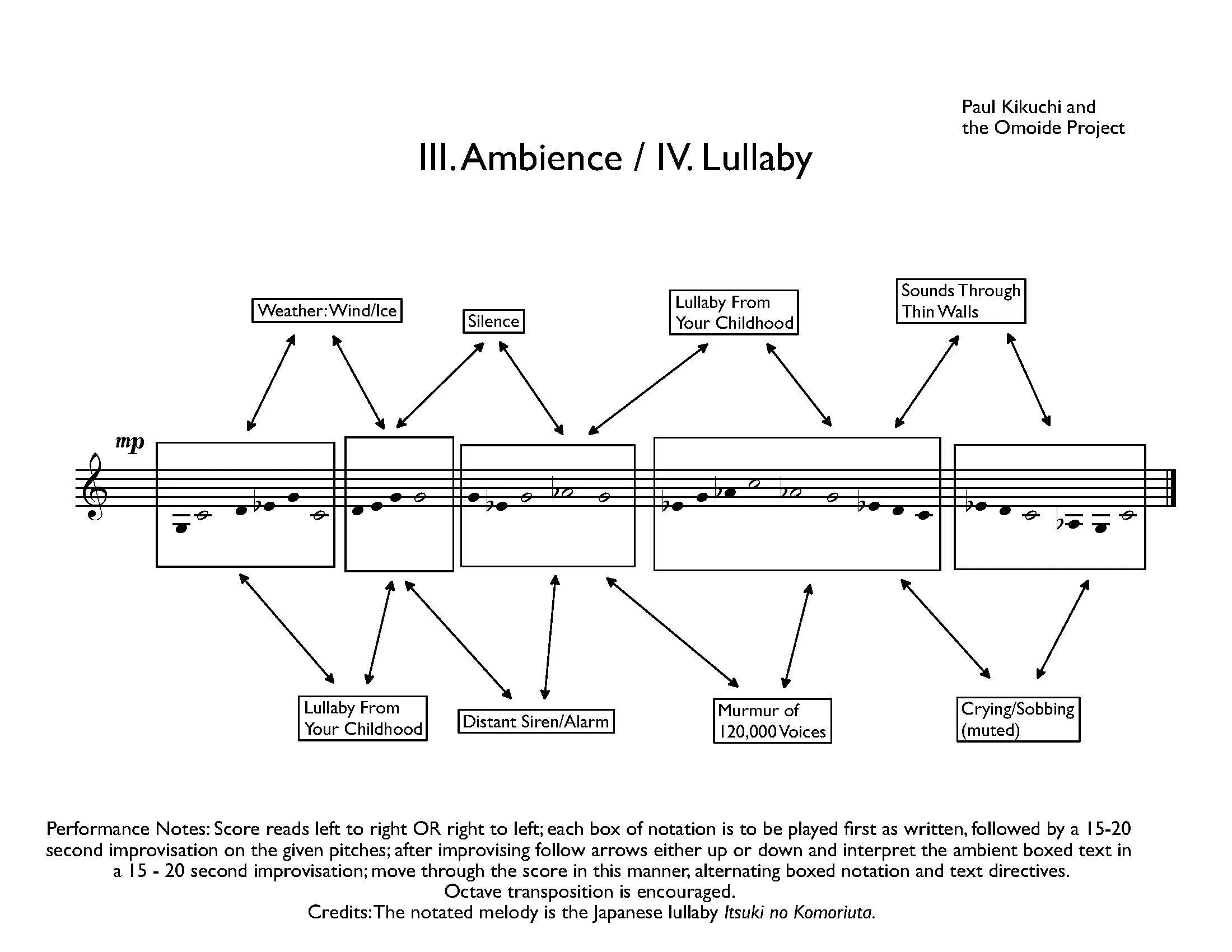In Shadows is a community composition, a collaboration between composer Paul Kikuchi and the Omoide (memories) Project, a Seattle-based collective whose mission is to preserve and share stories about the Japanese-American experience.
Kikuchi worked with Omoide Project team members to reflect on the 80 th anniversary of Executive Order 9066 - an order signed by Franklin D. Roosevelt in 1942 that stripped Japanese Americans of their civil rights and paved the way to the mass incarceration of over 110,000 people of Japanese descent, two thirds of them American citizens.
During Omoide Project meetings, where participants shared and workshopped their writings, and in generative brainstorming sessions with the composer, the team considered the multi-generational impact of the incarceration experience, discussed the meaning of citizenship, patriotism, resistance, and how generational trauma can be uncovered and healed. Group members also shared their memories of the soundscape of the camps (real or imagined), which Kikuchi translated into the musical composition.
Kikuchi states: “In Shadows is a 5-movement work, each exploring a different topical area that came up in our collaborative community dialogues or that I drew from the stories that the Omoide writers shared. The first movement, Invocation, is an opening of the space; an invitation to our ancestors to share the space with us and an acknowledgement of their struggle and resilience.
The second movement, In Shadows, is a series of questions: What is a citizen? What is a patriot? What isa resister? What is a friend? What is it to heal? The refrain, “it was for your protection,” was something that was told to Japanese Americans as they were being taken away – they were being removed for their own protection.
The third and fourth movements, entitled Ambience/Lullaby, explore the soundscape of the camps. From weather sounds of wind and rain to sorrowful crying, sobbing, and moaning to the sweet lullabies echoing faintly through thin camp walls. The musical theme is drawn from an old Japanese lullaby called Itsuki no Komoriuta.
The fifth and final movement, Still This Ringing, is inspired by a line from a poem of one of the Omoide Project members, in which generational trauma of the incarceration experience is described as a ringing in the ears.”
Thank you to the following Omoide Project team members were involved in the creation of this composition: Atsushi Kiuchi, Joan Seko, Mary Abo, Joe Abo, Lori Matsukawa, Carole Okamoto, Merrilee Tambara, Jay Rubin, Rakuko Rubin, Jean Chen, Megumi Ito, Janine Brodine, and Dee Goto.
Thank you also to those who assisted in the creation of this project in various ways: Theo Bickel, Erin
Shigaki, Jess Juanich, Sheera Tamura, Tari Nelson-Zagar, and the Japanese Cultural and Community Center of Washington.
